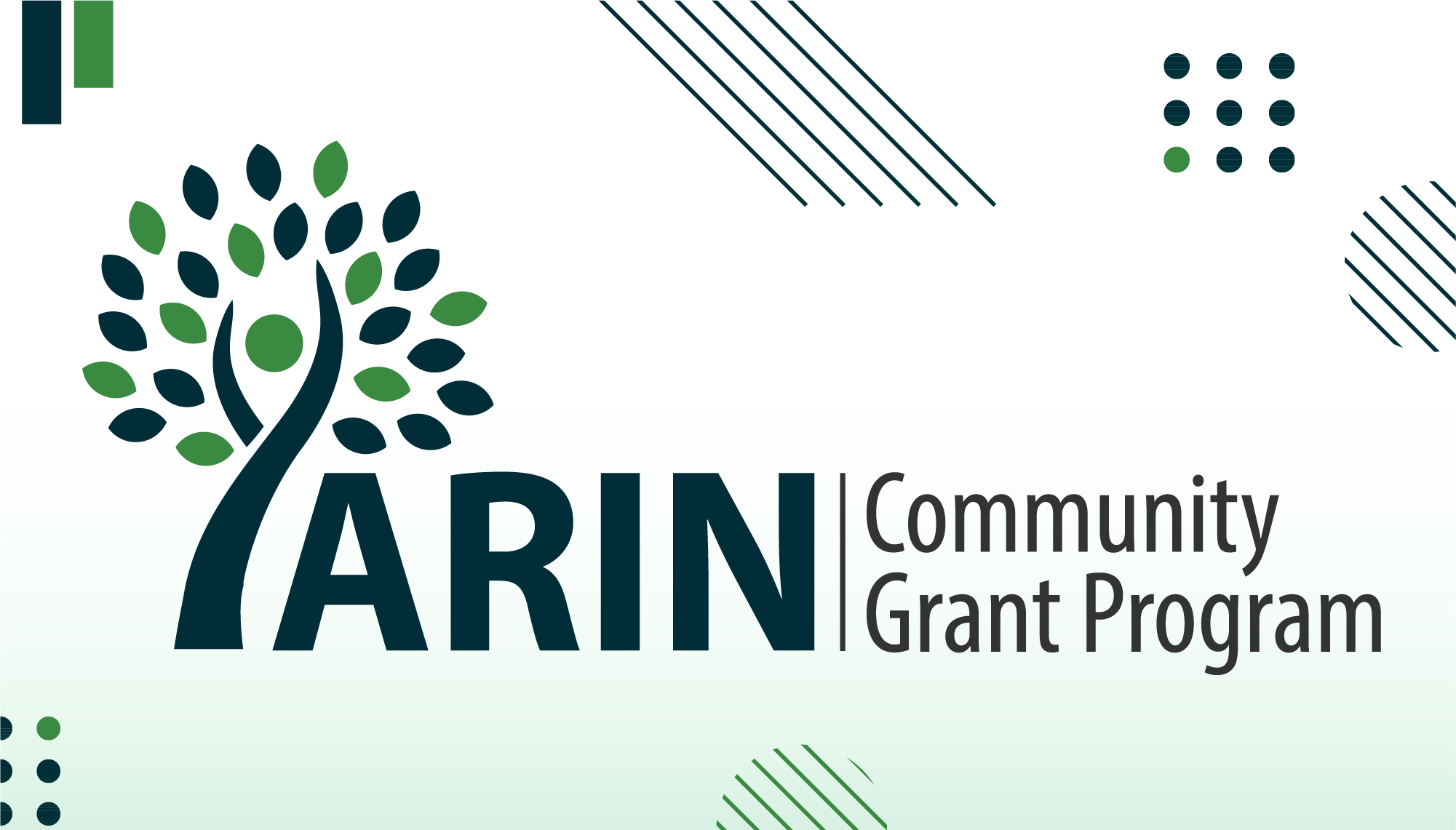
Should I Apply for a New ARIN Community Grant?
Have you heard? We just launched a brand-new ARIN Community Grant Program! Wondering if you should apply for one of these grants? Let’s take a look at the program to see if you have a project that is a good fit.
What is it?
The ARIN Community Grant Program is designed to provide financial grants in support of initiatives that improve the overall Internet industry and Internet user environment in the ARIN region. Ever since ARIN first began, we have been committed to advancing the Internet in a number of ways, and now we are pleased to build on these efforts with the launch of the ARIN Community Grant Program. This program will allow us to make an even bigger impact on the Internet of tomorrow.
Who should apply?
We invite representatives of organizations with an idea for an innovative project that benefits the ARIN community to apply. We will accept applications from non-government organizations, non-profit educational bodies, universities, research & development institutions, open-source groups, and others. This is not an exhaustive list. If you represent another type of organization and have a project that meets the eligibility criteria, you are also welcome to apply.
Is my project eligible?
Before you decide to apply for a new ARIN Community Grant, ask yourself, does my project benefit the Internet community within the ARIN region? And does it fit into one or more of these three categories?
-
Internet technical improvements
- Promotes and facilitates the expansion, development, and growth of the infrastructure of the Internet consistent with the public interest
-
Registry processes & technology improvements
- Helps maintain a globally consistent and highly usable Internet Numbers Registry system
-
Informational outreach
- Advances the Internet by covering topics such as, but not limited to: IPv6 deployment, Internet research, and Internet governance
If you answered yes, and can clearly explain how so, you’re on the right track. Also, projects that will be completed within a one-year timeframe will be given priority, so take that into consideration as well.
How much funding is available?
The ARIN Community Grant Program has a total budget of $60,000 (USD) in 2019 that will be awarded to multiple projects in varying amounts. The minimum award amount is $1,000 and funding is based on the unique need of each project. You will be asked for detailed budget information in the application phase to be considered for funding.
When is the deadline?
We are accepting grant applications until 11:59 ET on Tuesday, 11 June 2019. You definitely don’t want to miss the deadline.
How are projects selected?
The ARIN Grant Selection Committee will review applications according to the published selection criteria and make recommendations to the ARIN Board of Trustees Finance Committee. The ARIN Board of Trustees will then make the final selection at a regularly scheduled business meeting.
How do I apply?
All the information you need to apply can be found on ARIN’s new Community Grant Program page. Hit the “apply now” button to start your application.
Do you have any tips for me?
Take your time filling out the application, and don’t skimp on the details. Keep in mind your application will be scored on a 50-point scale in four major areas: completeness, alignment with eligibility guidelines, relevance and reach, and likelihood of success. Make sure you demonstrate exactly how your project meets each of these selection criteria.
Good luck! We look forward to receiving your application and enabling projects that serve the ARIN community. Together, we will grow the Internet.
Recent blogs categorized under: Grant Program
GET THE LATEST!
Sign up to receive the latest news about ARIN and the most pressing issues facing the Internet community.
SIGN ME UP →Blog Categories
Updates • Public Policy • RPKI • ARIN Bits • Fellowship Program • Data Accuracy • Security • Tips • Caribbean • Grant Program • IPv6 • Business Case for IPv6 • Internet Governance • Elections • Outreach • Training • IPv4 • Customer Feedback • IRR


